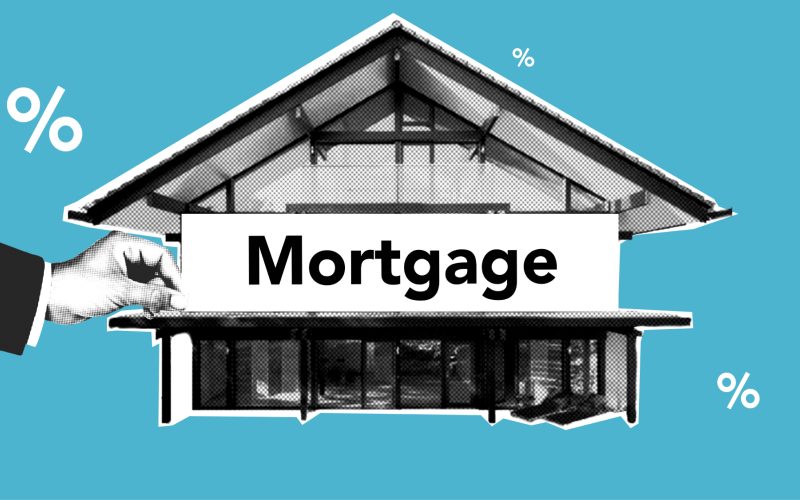Property development finance is a type of business financing used to finance the development of residential, commercial or multi-functional properties. The term covers a wide range of categories related to properties development finance options. Property development finance is a complex process; because lenders often consider different criteria for assessing the risk of lending to developers and investors. However, the work nature of the property developers is also very complex, and many lenders are not very familiar with this process.
How Does Property Development Finance Work?
Property development finance is a short-term mortgage for residential property development, such as construction projects, that is used as an advance on a mortgage to buy land or pay for the development of a property or turn it into a flat. On the other hand, property development finance is different from traditional mortgages. For example, lenders evaluate the property’s value and then allocate the mortgage based on the borrower’s eligibility. But in property development mortgages, lenders estimate the property’s future value and then assign the mortgage to the borrower according to their qualifications and affordability.
Lenders often categorize different property development finance options based on processes, costs, interest rates, or risk assessments. They usually ask the borrowers to pay the appropriate collateral for the mortgage. The higher the value of your property or valuable assets, the lower the lender’s risk will be, and as a result, they will apply lower interest rates on mortgages.
What Are The Benefits Of Using Property Development Finance?
In this section, the most important benefits of using property development finance options are mentioned:
- Property development finance is paid relatively faster.
- The cost of this process is not high and usually costs much less compared to other long-term mortgages.
- These mortgages also come with reasonable interest rates, which will vary depending on the borrower terms and conditions and the amount of affordability and valuations made on their securities, assets, and deposits.
The Role of the Development Finance Broker
A development finance broker is a bridge between developers and investors on the one hand and lenders on the other. According to the needs and financial conditions of the developers, a development finance broker seeks development finance options and solutions from the lenders and provides them with the necessary advice in this regard. The choice of mortgage broker Southampton depends mainly on their qualifications, their sufficient knowledge and expertise, knowledge of market innovative available solutions, careful analysis of the needs and potentials and financial conditions of developers and their success rate in various aspects of the development finance options.
What Are the Property Development Finance Options?
SWG Mortgages specialist advisors have extensive knowledge and experience in property development finance. They are also very good at designing financing solutions for development finance options. Our expert advisors work extensively with property developers and investors to help them find personalized financing solutions. SWG Mortgages advisors help investors and professionals find suitable mortgages for their development goals according to their needs and financial situation. Talk to our specialist advisors and take advantage of their consultancy services. There are generally seven types of property development finance which are:
- High street mortgages
- Second charge mortgages
- Commercial mortgages
- Buy-to-let mortgages
- Residential bridging mortgages
- Commercial bridging mortgages
- Bridge-to-let
1. High street mortgages
These are the primary day-to-day mortgages of developers that most banks and lenders repay. To get this mortgage, the borrower’s application is presented to the lender along with the introduction of their ability to repay the mortgage and the value of the purchased property. These mortgages come in many forms. For example, some of these mortgages are offered at a fixed rate, and some are offered at a variable rate. These mortgages are suitable for properties that the borrowers intend to live in a while completing the work. These mortgages are not ideal for rental properties or commercial properties.
2. Second charge mortgage
A second charge mortgage is a second mortgage or a guaranteed mortgage and will compliment your current mortgage. Instead of other options such as remortgages, second-rate mortgages are used to free up funds to improve or add value to the property. Like high street mortgages, these mortgages are guaranteed against the value of your property. But unlike high street mortgages, the borrower usually does not have to live on the property to secure the mortgage. These mortgages are suitable for self-employed or small business owners. Second-cost lenders also have a more comprehensive set of criteria, making it easier to lend to more diverse customer profiles.
3. Commercial mortgages
Commercial mortgages are very similar to high street mortgages, except that the property against which the mortgage is secured must be classified as commercial and in the form of a business. Another difference is that instead of your income plays a role in the mortgage application process, the lender uses it to assess your affordability based on your business income and assets. In addition, if you have a relatively new investment, the lender may ask you for a future business plan.
4. Buy-to-let mortgages
There are two main paths for property developers – renovating a property for sale or buying a property for rent. Buy-to-let mortgages are the best option for investors who purchase property for rent. The difference between these mortgages and high street mortgages is that buy-to-let mortgages have slightly higher interest rates, require more extensive deposits, and the borrower must pay more extra costs. Borrowers should also make sure that rental income repays the mortgage and covers additional fees such as maintenance and taxes.
5. Residential bridging mortgages
Property developers often use residential bridge mortgages because they are more flexible than high street mortgages. These mortgages are short-lived, and property developers often use them when buying and selling property or renovating. These mortgages help to bridge the gap between the two main types of mortgages. For example, while the investor is waiting to complete his mortgage application, the mortgage can provide them with financial resources to purchase the property.
6. Commercial bridging mortgages
Like residential bridge mortgages, the investors use commercial bridge mortgages to fill the budget gap when buying or renovating a commercial property. The investors can use these mortgages to expand a small business or buy a new house.
7. Bridge-to-let
These mortgages are beneficial for those who are looking to buy a rental property. These mortgages can be used for both commercial and residential property.
SWG Mortgages specialist advisors with years of experience in development finance options are connected to a network of leading lenders. Depending on the applicant’s needs, potential and financial situation, our advisors will find the best conditions for them. SWG Mortgages advisors are fully acquainted with the development finance options, are fully aware of their advantages and disadvantages, and by communicating, negotiating with lenders can make a full range of development finance options comparison to borrowers. SWG Mortgages advisors provide the highest ratio of Loan-To-Gross-Development-Value (LGDV) for borrowers. They can give a complete comparison of the lender’s rates and conditions and guide developers in choosing the best development finance option.









